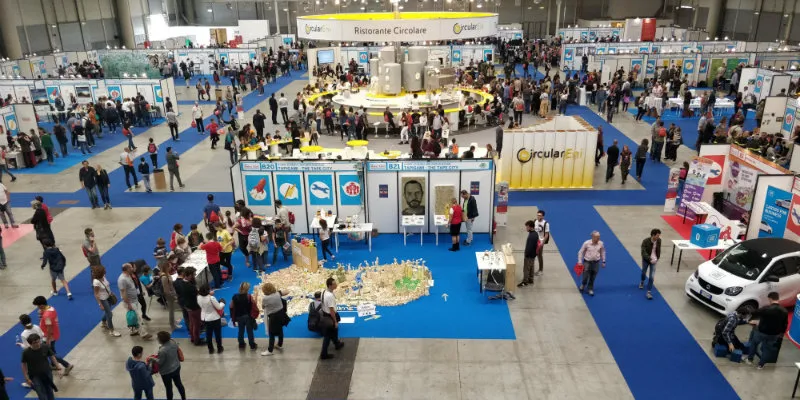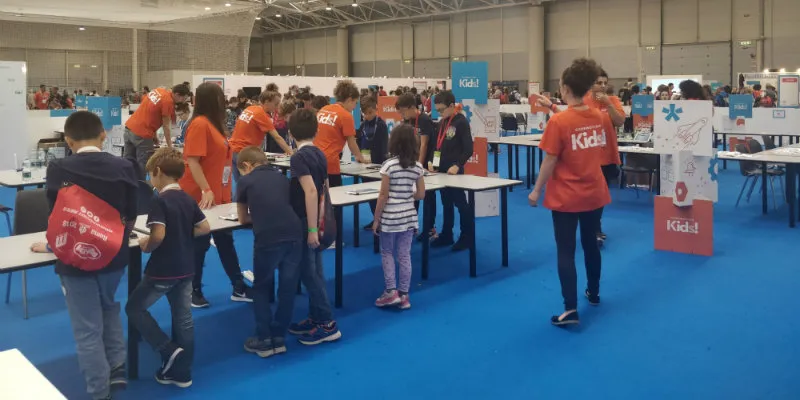3D printers to pasta sensors - Maker Faire Rome showcases innovation, puts the fun in learning
At Maker Faire Rome, which put the focus on makers, students from 25 universities/research centres and 55 high schools from across Italy showcased their projects.
One would expect an event that showcases innovation, manufacturing, and creativity to draw select crowds, but the recently-concluded Maker Faire Rome - The European Edition, was a revelation of sorts. Seeing more than 115,000 visitors in attendance over three days, the event put the spotlight on over 700 projects from 61 countries.
A key attraction for me was Don Eyles, a computer programmer for Apollo 14, who gave the audience an insider’s perspective of the Apollo Missions, and the build-up to the landing of the first man on the moon.

There were several fun elements too - the event kicked off with a rousing performance by the Gaudats Junk Band. The band is special as it raises awareness on recycling by playing with recycled materials - band members used a wide variety of discarded items, including fuel canisters and wine boxes, to make guitars and amplifiers - a prime showcase of one of the themes of the event - Circular economy.
A Circular Economy is one that is regenerative by design, and aims to retain as much value as possible for products, parts, and materials. In keeping with this idea, Maker Faire also had a pavilion dedicated for those who had come up with revolutionary ideas on sustainability, recycling, bio-economy and green energy.
Another thing I loved about the event was the focus on the next generation – the students. With a dedicated hall for Young Makers, it showcased inventions by students - from 11-year-old Ayve’s birthday bot to Nissena Lucia Arcarisi’s Palpreast, a wearable device for breast self-examination, at the Piaggio research centre.
With seven halls exploring the themes of Electronics and Fabrication, Makers for Space/Research, Circular Economy, Design and Life, Young Makers, Drones and Kids Education, and Makers on Stage, the organisers ensured the event brought together makers from all walks of life and all part of the world.
About 25 universities and research centres and 55 high schools from all over Italy showcased their projects at the event. There were activities for children ranging from AR games to DIY kits and competitions - all tailored to ensure learning was made fun.

No Maker Faire can be complete without showcasing the many ways in which 3D printers can be put to use - including one that can print another. It was also impossible to miss the quintessentially Italian showcase - sensors to detect whether parmesan cheese was actually made in Italy, pasta made from various ingredients including seaweed, and 3-D printers and laser cutters that recreated designs made by Leonardo da Vinci.
The largest European innovation event was promoted and organised by the Rome Chamber of Commerce, and is considered the world's most important show on innovation. As part of the Indian delegation with the Italian Trade Agency to Rome, I had read about Maker Faire, but nothing had prepared me for its scale. The sheer magnitude of the event left me in awe. Not a stranger to mega exhibitions and events in India, Maker Faire Rome was a stunning demonstration of the technological and creative prowess of the European maker ecosystem.
Notable exhibitors at the Maker Faire Rome included Agrimax, which makes utensils from crop and food processing waste; Rifò, an emerging brand that produces 100 percent upcycled apparel using discarded clothes; Paper-O, which has developed a machine that can recycle paper at home; and Reco2, which offers products and solutions for green buildings through a production process that exploits temperatures below 100 degrees, reducing both production costs and CO2 emissions.
Italian oil and gas company Eni also showcased its efforts towards creating a greener planet through its eco-fining technology, which can transform cooking oil waste into high-quality bio-fuel.







